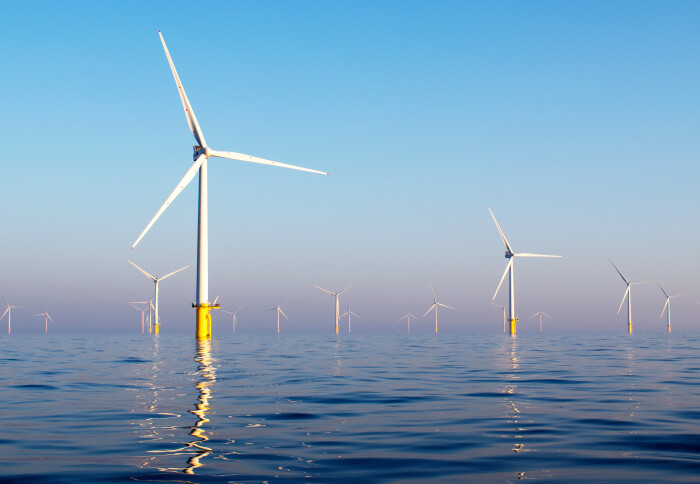Imperial report calls on Government to make UK a global leader in green hydrogen

Government support could make the UK a global leader in green hydrogen, according to Imperial researchers.
A new report published by Energy Futures Lab, Imperial’s global energy institute, finds that the UK’s offshore wind resources make it ideally placed to produce hydrogen from renewable electricity, with the potential to export significant quantities to its European neighbours.
The Briefing Paper, ‘Enabling the UK to become the Saudi Arabia of Wind? The cost of green hydrogen from offshore wind’, argues that green hydrogen will be necessary to decarbonise sectors of the economy that cannot be electrified, but warns that Government support will be needed to bring down costs in the short to medium term.
“Thanks to our long coastline and windy seas, the UK is probably the most suitable place in Europe to generate wind power,” says Dr Olusola Bamisile, first author of the report. “Using that power to produce hydrogen means we can store surplus energy for later use and give industry a clean alternative to fossil fuels at the same time.”
Hydrogen is a fundamental building block for a range of chemicals essential to our society. Luke Hatton Co-author
At present, most hydrogen is produced using natural gas as a feedstock, which results in the release of greenhouse gas emissions. ‘Green hydrogen’, on the other hand, is produced through electrolysis – where water is split using an electrical current from a renewable source – a method which, while more environmental beneficial, is currently two to three times more expensive.
“Hydrogen is a fundamental building block for a range of chemicals essential to our society”, says Luke Hatton, co-author of the report. “Green hydrogen holds promise to decarbonise existing production, whilst also potentially acting as a clean fuel for many other sectors. An understanding of the costs and associated barriers to green hydrogen is vital to determine its role in achieving net zero.”
Although production costs are expected to fall over the coming decade, the authors note that, without intervention, green hydrogen is likely to suffer from a ‘chicken and egg’ scenario, where demand is inhibited by cost and vice versa.
Political will
The authors say political will is needed to advance green hydrogen production in the near term and see it through a critical cost reduction phase, with policy support needed to build markets for its end use and areas where it creates the most value for the British public. This could create a safe investment environment for backers of early projects to build momentum and guarantee future cost reductions.
“It is almost impossible to imagine a future where hydrogen will not play some major role in the decarbonisation of our economy. For some sectors there is currently no viable alternative but, at the moment, the cost of hydrogen is a major barrier,” says Dr Malte Jansen from the University of Sussex, who co-led the study with Imperial’s Dr Iain Staffell.
“Electrolysers are still expensive, which is why we need the Government to step in to help scale up the technology to ultimately reduce the cost.”
We have an opportunity here to make the UK a significant energy and technology exporter, with all the economic benefits that it brings. Dr Iain Staffell Senior Lecturer in Sustainable Energy
Cost is not the only challenge. The report also highlights the need to resolve the supply chain issues that are currently plaguing the UK offshore wind industry, and to develop new forms of flexibility to eliminate the need to rely on fossil fuels during periods of low wind output.
However, the long-term advantages of investing in the sector are sizeable. Backing wind-powered hydrogen now could help the Government realise its ambition of making the UK the ‘Saudi Arabia of wind’, according to Dr Staffell:
“We have an opportunity here to make the UK a significant energy and technology exporter, with all the economic benefits that it brings. Of course, it requires investment in the short to medium term, but our natural wind resources give us a head start on our European neighbours, and we can’t afford to squander that.”
The report is the latest publication from the Integrated Development of Low-carbon Energy Systems (IDLES) programme, funded by the Engineering and Physical Sciences Research Council and industry partners. It brings together expertise from seven departments at Imperial to tackle the diverse challenges associated with transitioning to an integrated, low-carbon energy system.
Enabling the UK to become the Saudi Arabia of Wind? The cost of green hydrogen from offshore wind is available to download here.
Article supporters
Article text (excluding photos or graphics) © Imperial College London.
Photos and graphics subject to third party copyright used with permission or © Imperial College London.
Reporter
Conor McNally
The Grantham Institute for Climate Change